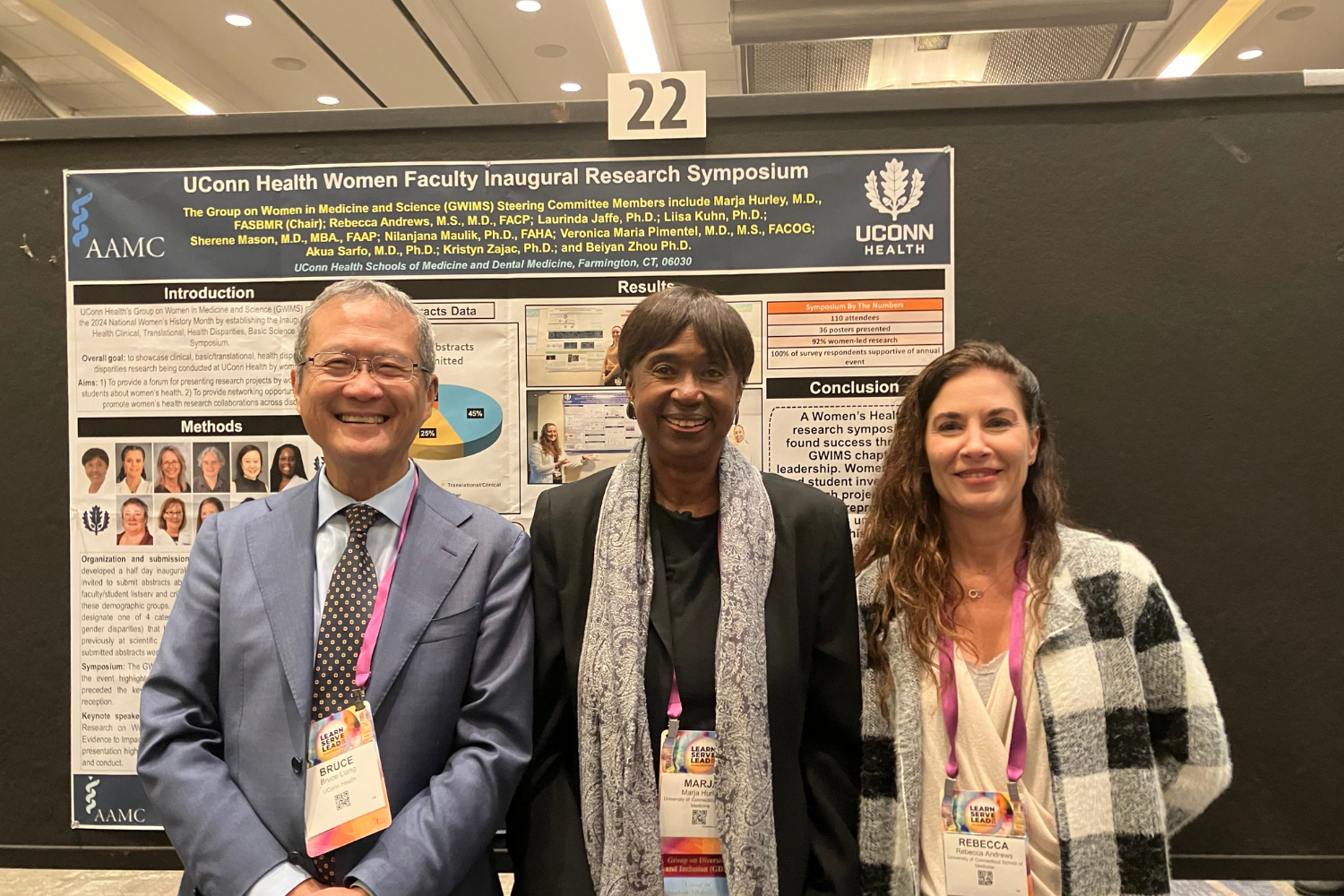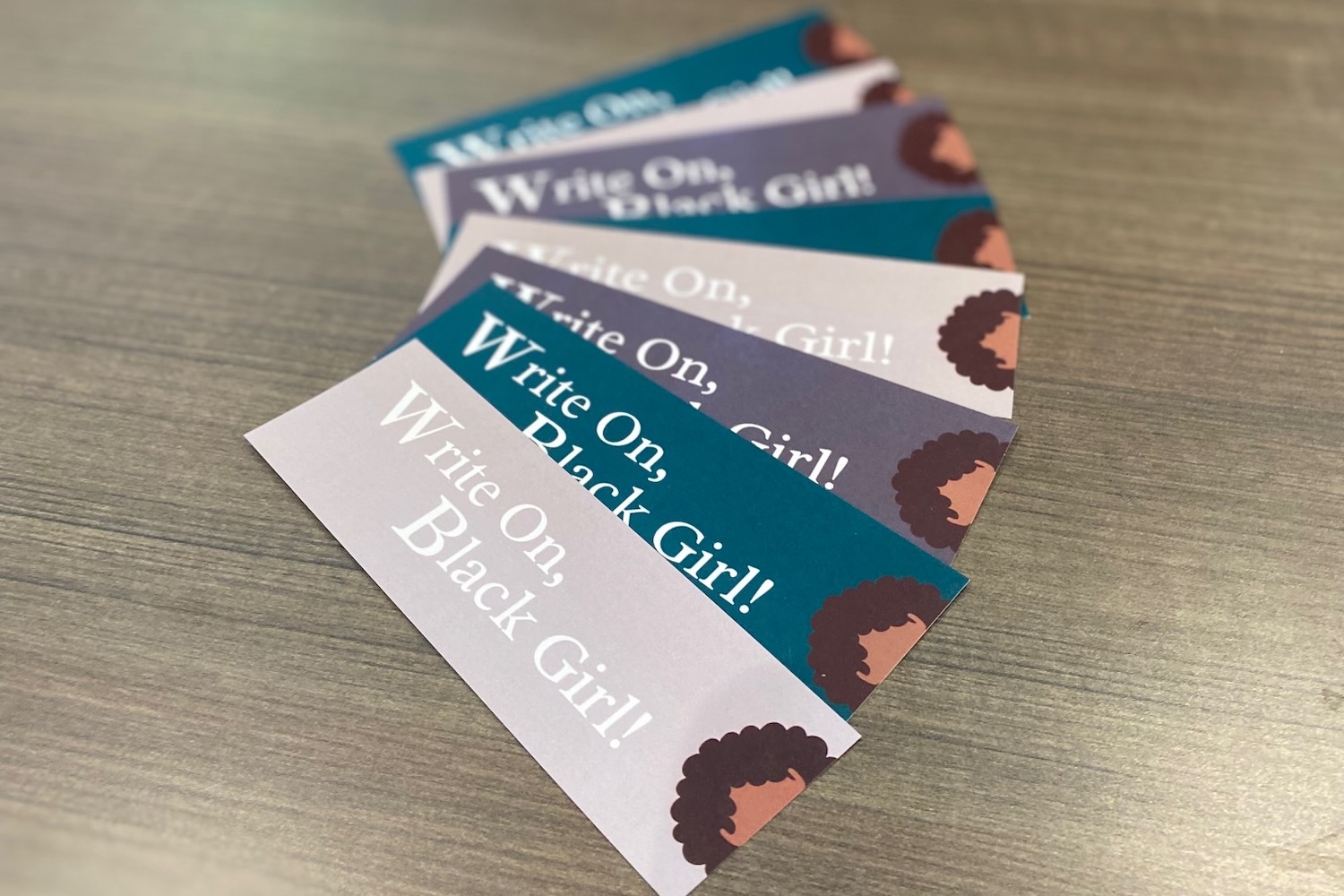Diane Burgess, PhD, is one of the most active researchers in UConn’s School of Pharmacy. Take a peek inside her labs and learn more about her accomplishments as a globally recognized researcher, experienced collaborator, and dedicated educator.
Burgess doesn’t have one lab in the UConn School of Pharmacy—she has four.
The space she has been afforded over her 25 years at the university reflects the growth of her impact as an accomplished member of UConn’s pharmaceutical sciences faculty.
Burgess’ research interests are in pharmaceutical processing, drug delivery systems and performance testing methods, implantable biosensors for glucose monitoring for diabetic patients and intracellular trafficking of gene therapeutics and delivery systems using quantum dots.
Being an active researcher with such a diverse set of interests implies, even requires, seeking out collaborators with different skills, according to Burgess.
“Before I came to UConn, collaboration between researchers was sort of frowned upon, but that has never really been my preferred approach,” explains Burgess. “I’ve always liked applying my knowledge to different fields and types of problems. Working with researchers who have different backgrounds and strengths means we can really make a difference and find creative solutions.”
A review of Burgess’ past and ongoing collaborations underscores this focus on interdisciplinary partnerships.
In one ongoing project, Burgess is working with UConn chemists and engineers to develop miniature glucose biosensors that can transmit readings to any personal digital accessory, such as a smartphone or personal computer. This technology is being commercialized by a UConn-affiliated startup, Biorasis, that is housed at UConn’s Technology Incubation Program and was a recent winner of the prestigious MassChallenge startup competition.
In addition to her longstanding partnership with Biorasis founders and fellow UConn faculty, Burgess has also teamed up with researchers from UConn Health to address critical, unmet clinical needs. Beginning in late 2015, Burgess and Dr. Rajesh Lalla, associate professor of oral health and diagnostic sciences, started developing a novel, long-acting, topical anesthetic product for treatment of oral mucositis. Oral mucositis is a painful side effect of chemotherapy and radiation, which negatively impacts thousands of patients and currently has no effective treatment. Their proposed solution, an innovative long-acting oral spray formulation, could potentially result in better local pain management, reduced need for systemic opioids, improved quality of life, and lower cost of care.
“This type of problem is not impossible to solve if we bring together the right experts,” says Burgess. “Potentially fixing a problem that is causing people to suffer is really meaningful to me.”
This has been a common trend in Burgess’ career: responding to pain points experienced by patients, fellow researchers, or industry partners. Another ongoing project with assistant research professor and former graduate student in Burgess’ lab, Antonio Costa, aims to develop a continuous manufacturing platform for complex parenteral drug products to avoid the risks of batch manufacturing, reduce manufacturing facility footprint, and ensure product quality and supply to patients at reduced cost. The team has participated in Accelerate UConn, the university’s National Science Foundation I-Corps Site, to commercialize the product. Funding for the original research that led to this novel platform came from a $3 million grant from the Food & Drug Administration.
“We are truly fortunate to count Diane as a member of our faculty,” says José Manautou, PhD, department head of pharmaceutical sciences and professor of pharmacology and toxicology. “Diane has this unique ability to attract and train extraordinary people. Many of her past trainees hold key positions as scientists in the private, public, and government sectors. Her innovative multidisciplinary scholarly work and substantial service contribution to the global scientific community have brought a great deal of recognition to UConn and to our School of Pharmacy.”
Throughout her career, Burgess has been recognized by her peers for her contribution to the field of pharmaceutical sciences, including being the youngest researcher ever elected American Association of Pharmaceutical Scientists (AAPS) president in 2002. The AAPS is a global organization with members from related fields of pharmacy study, as well as scientists from complementary disciplines, like chemistry, biology, engineering, and medicine involved in the discovery, development, and manufacture of pharmaceutical products and therapies.
Burgess was also elected president of the Controlled Release Society in 2009. She is one of only four researchers to have ever served as president of both of these prestigious societies.
Along with her many professional accomplishments, Burgess is a devoted educator. Those four labs she maintains in the School of Pharmacy are constantly buzzing with activity from student researchers at all levels. Burgess has been recognized for this commitment, having received the award for UConn’s Outstanding Teacher of the Year in 1992 and 2005. In 2014, the AAPS honored her with their Research Achievement Award in Formulation Design and Development, as well as the AAPS Outstanding Educator Award.
Her commitment to providing student researchers with opportunities went global when she helped establish the School of Pharmacy’s signature Traditional Chinese Medicine Study Abroad Program in China with Peking University approximately 10 years ago. Through this five-week program that takes place during the summer, Pharmacy majors learn about traditional eastern medicine to supplement their education in western approaches.
“It’s been a great experience for me too,” explains Burgess. “I have learned a lot, now hold joint appointments at Peking and Fudan Universities, and I even speak a little Mandarin.”
Going forward, Burgess plans to continue to do what has worked for her—support her students and collaborate with others to use the “crazy and great ideas” that emerge to find solutions to real world problems.
Dr. Diane Burgess received her bachelor’s degree from the University of Strathclyde in 1979 and went on to receive her PhD in pharmaceutics from the University of London in 1984. She was a postdoctoral fellow at the University of Nottingham and the University of North Carolina. She currently holds three patents, with three more pending. Throughout her career, she has won over $21 million dollars in external funding. She is the author of two books, as well as a plethora of book chapters and peer-reviewed articles. In addition to being an elected member of many discipline-specific societies, she was also a member of the USP Biopharmaceutics Expert Committee and the USP Advisory Panel on Injectables. Dr. Burgess has served on NIH study sections on Drug Delivery and Biomedical Engineering, Drug Delivery and Drug Discovery, Gene and Drug Delivery, and Nanomedicine as well as many special study sections for NIDA, NIDDK and NCI.
This article originally appeared in innovation.uconn.edu.



